Last-Minute NYC Holiday Gift Guide 🎁
We’ve created a holiday gift guide with presents for the intrepid New Yorker that should arrive just in time—


There are some movies that you think about months or years after you’ve seen them, and Topside is one of those. Releasing today, March 25th on Apple TV, Topside is set in the Freedom Tunnel, the famous train underpass below Riverside Park. The film recreates the world of the “mole people” and the tunnel itself with impeccable precision. The artist Chris Pape, legendary for creating the murals that give the tunnel its nickname, personally repainted the artwork in an abandoned tunnel in Rochester, New York. But at the heart, Topside is a story about a mother and her five-year-old girl who have made a home in the Freedom Tunnel and are suddenly forced to flee aboveground — topside — on a brutal winter night after police evict the residents.
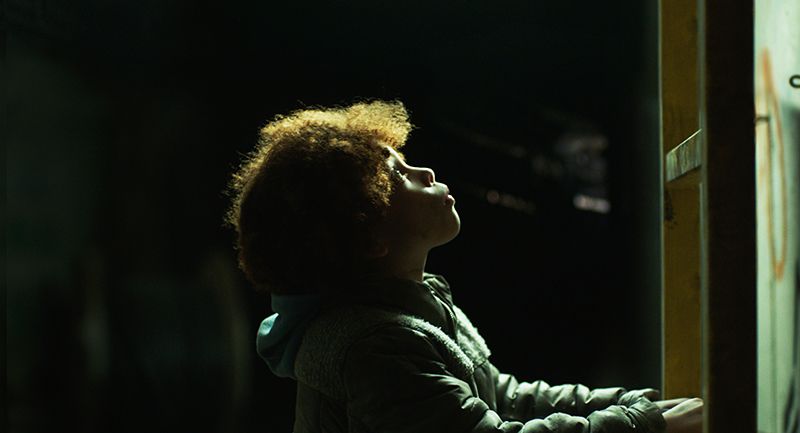
Topside is written and directed by Celine Held and Logan George, starring Held as the mother and Zhaila Farmer as her daughter Little. When I first heard about the film, I got in touch with Celine and Logan and had one of those great New York City conversations amongst people who have a deep appreciation for and understanding of New York. The film shows, in its honest portrayal of homelessness, what it means to be a family amidst urban uncertainty, and the reality of life above and below in a big city. We also spoke at length about the production of the film and how the tunnel was recreated.
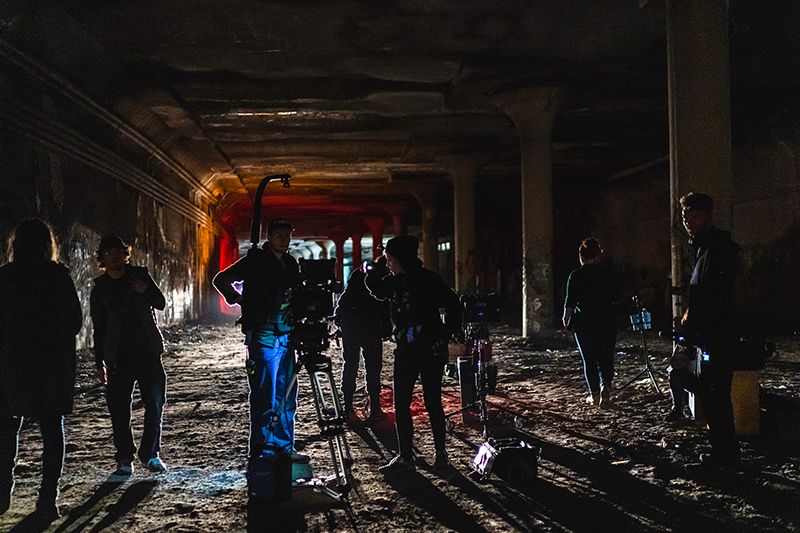
I first screened Topside in the fall of 2020 as the pandemic was raging and it regularly still pops up in my consciousness. I was the mother of a three-year-old and I didn’t know it yet, but I would be pregnant again with another daughter in just a few months. Topside left me thinking major existential thoughts about motherhood, about New York City, and its hidden, dark side. Topside, which won top awards at the Venice Film Festival and at SXSW, is an incredible must-watch for New York City fans.
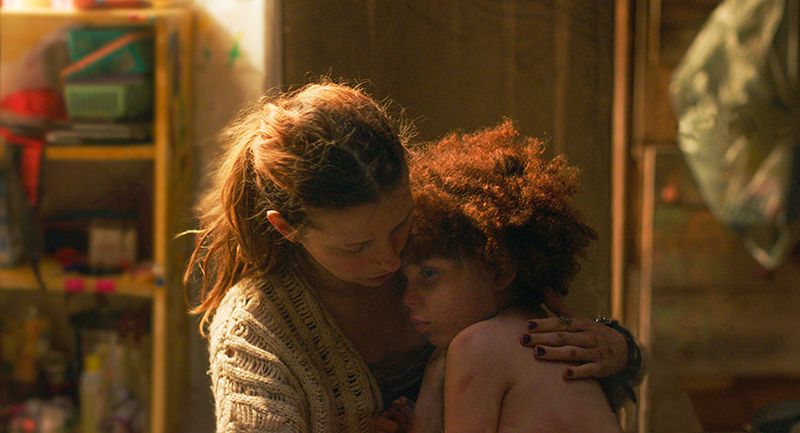
In our interview, Celine and Logan told me they have been big fans of Untapped New York since they moved to New York in 2009. “You have no idea how long we’ve been looking at your website. I moved to New York in 2009 and basically, my whole existence in New York has been on Untapped [New York].” The idea for Topside came about from their own urban exploration experience inside the Freedom Tunnel, something our team also did in 2013.
Celine says, “The first time I went into the Freedom Tunnel was in 2012. And at that time there were still some remnants. I remember there being milk cartons and cardboard and a lot of cinderblocks. You could still see like, ‘Third of May‘ [a work by Chris Pape]. It was water damaged, but not to the extent it is today at all. ‘Self portrait’ was still there. And I was arrested in 2012. And at that point, I was really on this train of, ‘We have to shoot in the Freedom Tunnel.'”
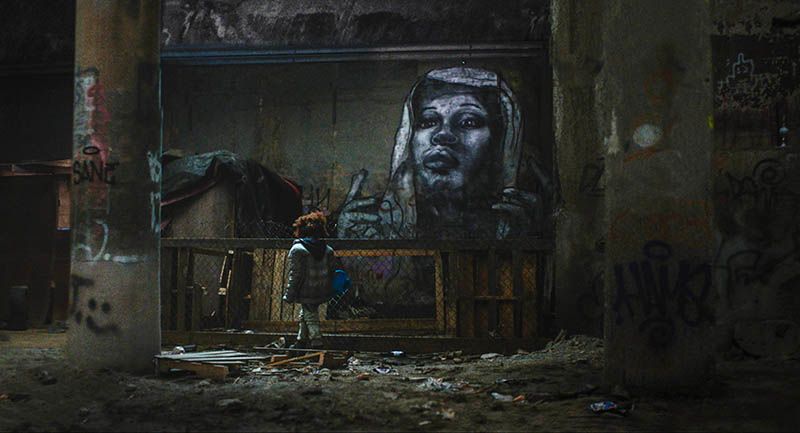
Celine and Logan went into the Freedom Tunnel together in 2014 and “we just became obsessed with the architecture of it,” says Celine. As urban explorers to the core, of course, Celine and Logan wanted to be able to sneak down there for the shooting. But the film’s producer Nora Mendes shot down the idea right away due to the live tracks and the constant traversing of Amtrak trains that still go through there.
“So we found a couple of different tunnel systems that could have worked,” says Celine, and landed on the defunct subway system in Rochester. Logan explains that most of the system is completely covered, but to recreate the Freedom Tunnel accurately they needed light shafts to come in. Luckily, there is a small section known as the aqueduct, “that opens up to light,” says Logan, “and that’s the most famous part because you get actual light down there.”
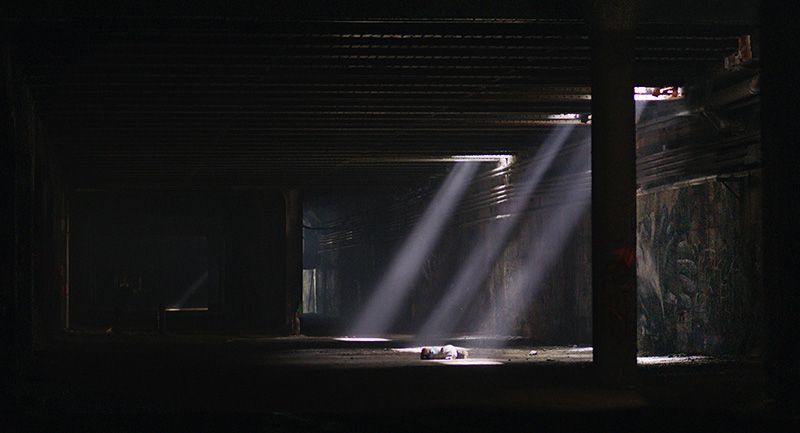
They also made a lot of maps to get oriented and to align the locations to the ones in New York City. “So many maps of where it was beneath the city in our heads,” explains Celine. Logan adds that the maps helped them “rationally, to understand where certain sounds are coming from and how the subway lines above it would interact. Celine continues, “Which subway lines are above it even? Because the architecture of the Freedom Tunnel is really specific.”
All of this helped influence the final product, which was not an exact recreation of the Freedom Tunnel but certainly evokes the spirit and is as close architecturally as possible. Logan explains all of the prep work was an “effort to serve the reality in our minds so that we could make very, very clear decisions on the fly as far as like, what the orientation of certain things is, and where things exist in the tunnel. But it ended up making our own little version and the Freedom Tunnel acted as this inspiration.”

Chris Pape was involved in the project since the beginning, and the filmmakers got in touch with him through Facebook. He read the script and gave his stamp of approval. He recreated well-known works of art from the Freedom Tunnel like “The Kitchen,” “Venus de Milo,” “the Hands,” and “David,” Those, Celine says, were “a direct copy of the Freedom Tunnel and was so stunning. It was massive. When you’re in the Freedom Tunnel, you just feel like you’ve been transported. The first time I went down there, I was like, I feel like I’m walking into ancient Rome for the first time.”
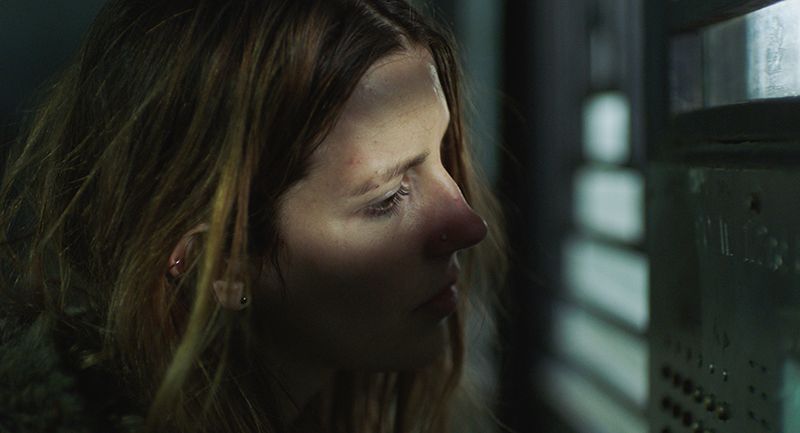
The filmmakers also explain why they wrote the story as a narrative one instead of as a documentary feel. Celine says, “You can tell the story from a journalist perspective of someone who’s encountering it. Or you can flip it and you can make it about the person’s experience where this is normal. This is life. This felt like the more compelling story and the story we wanted to tell that dealt also with childhood homelessness, and with unconditional love. And also drug addiction. It occurred in that tunnel.” Meanwhile, Celine and Logan were also completing a documentary about the Freedom Tunnel when we spoke in 2020.
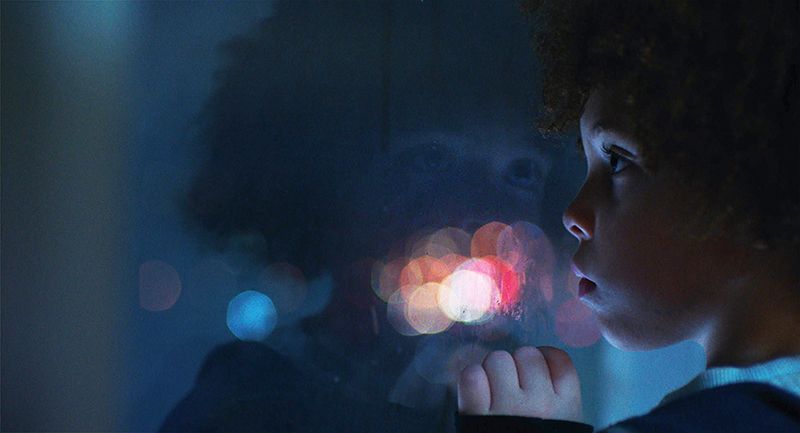
Authenticity was essential for Celine and Logan, both for the physical spaces and for the characters. Farmer, the young actress who plays Little, experienced a bout of homelessness with her family in New York City. Celine and Logan spent a year with her before filming and learned the ins and outs of what a family goes through, interacting with Child Protective Services and the Administration for Child Services. They also spoke with people who had lived in the Freedom Tunnel.
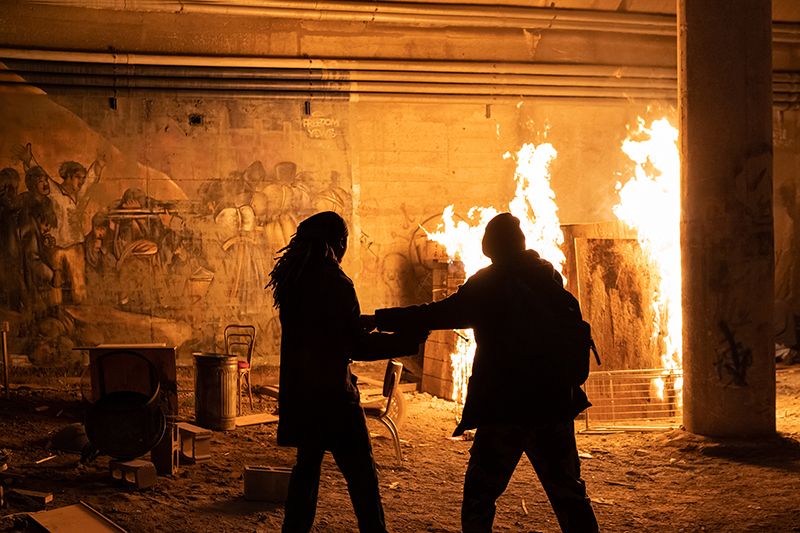
In addition to shooting in Rochester, Topside was also shot on the streets of New York City and inside the subway. They worked with the MTA and PATH trains for the shoot. All the shots in the film where the actors get very close to the live trains were filmed in the PATH system.
It’s clear that Topside is a passion project. With the awards Celine and Logan have won for their film shorts at the Cannes Film Festival, SXSW, and Telluride, they were able to finance Topside. Celine and Logan have been waiting for the distribution of the film for almost two years and the day is finally here. Topside can be seen streaming online on Apple TV.
Join us for a special preview of Topside with Celine Held and Logan George on April 18th at 5 p.m. as they recount how the film was made. This event is free for Untapped New York Insiders. If you’re not an insider, become a member now (the code JOINUS to get one month free).
Next, read more about repainting resilience in the Freedom Tunnel!
Subscribe to our newsletter